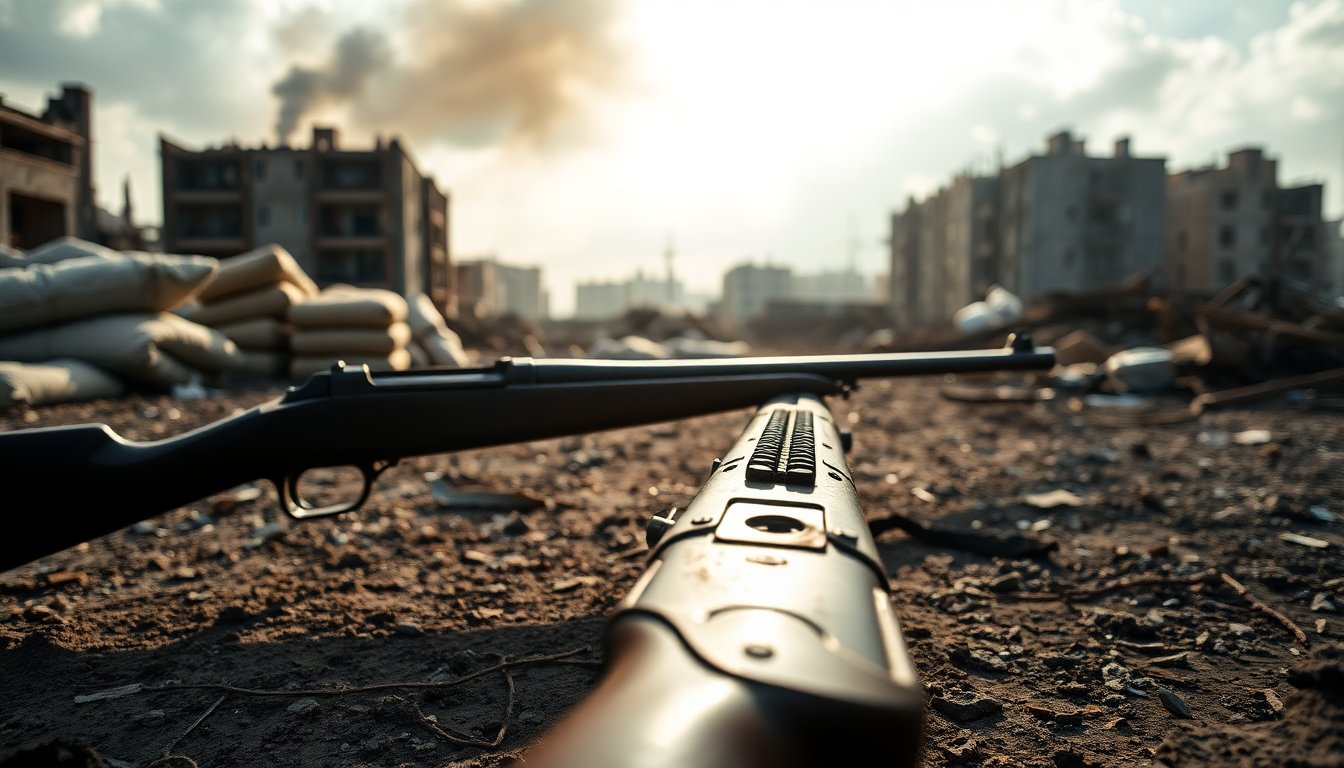Table of Contents
In the realm of military engagements, tales of valor often blend with personal humility. One such narrative belongs to Yury Trutnev, who serves as Russia’s deputy prime minister and oversees the Far Eastern Federal District. During a recent discussion with Russian milblogger Semyon Pegov, Trutnev shared a remarkable experience that showcased both his courage and modesty. On November 6, he recounted an event where he found himself in a precarious situation, armed only with a sniper rifle while taking refuge in a tower.
Rather than revel in his bravery, Trutnev approached the conversation with a sense of reluctance. He expressed that boasting about such actions would be disingenuous. This sense of humility led Pegov to label the interview as “Yury Trutnev — the presidential envoy armed with a sniper rifle,” hinting at the layered complexities of his character and role.
Confronting the battlefield
The discussion about Trutnev’s military exploits emerged when Pegov inquired about a specific site near the city of Vuhledar, colloquially known among Russian troops as Trutnev’s house. Trutnev elaborated on the circumstances, recounting how he utilized a sniper rifle from that location while under bombardment from Ukrainian forces. This moment illustrates the harsh realities of warfare, where every decision can be a matter of life and death.
Encountering enemy fire
During one of his visits to the Donetsk region, Trutnev’s group faced unexpected adversities. According to reports, an officer from the Russian military advised them, “If you encounter an armored vehicle, you’ll need to manage that yourselves.” This candid statement reflects the chaotic nature of warfare, where even high-ranking officials must prepare for the unpredictability of battle. Trutnev and his team were surprised by the sudden attack, yet they adapted swiftly. On their subsequent expedition, they equipped themselves with a drone, demonstrating a proactive approach to overcoming challenges.
Tracing Trutnev’s journey
While the precise timeline of Trutnev’s sniper experience remains ambiguous, his frequent visits to the Donetsk region have attracted media attention since early. Notably, in February, he was reported to have delivered Lobaev sniper rifles to the soldiers of the 155th Marine Brigade during a visit to the Vuhledar vicinity. This interaction not only highlights his involvement in military logistics but also connects him to the history of the brigade.
A legacy of the 155th Marine Brigade
The 155th Marine Brigade has been a notable presence in the area surrounding Vuhledar, particularly since the summer of. Their operations were instrumental in various military efforts until they were withdrawn in August, ahead of Ukraine’s counteroffensive in the Kursk region. Pegov’s narrative intertwines Trutnev’s sniper activities with the brigade’s legacy, emphasizing the intertwining of personal tales within broader historical contexts.
Through these encounters, Trutnev exemplifies how individuals can navigate the complexities of military engagements while maintaining a grounded perspective. His reluctance to seek glory in his experiences serves as a reminder that in the theater of war, the focus often shifts from individual valor to collective resilience. As conflicts continue to unfold, the stories of those like Trutnev will remain crucial to understanding the multifaceted nature of modern warfare.


